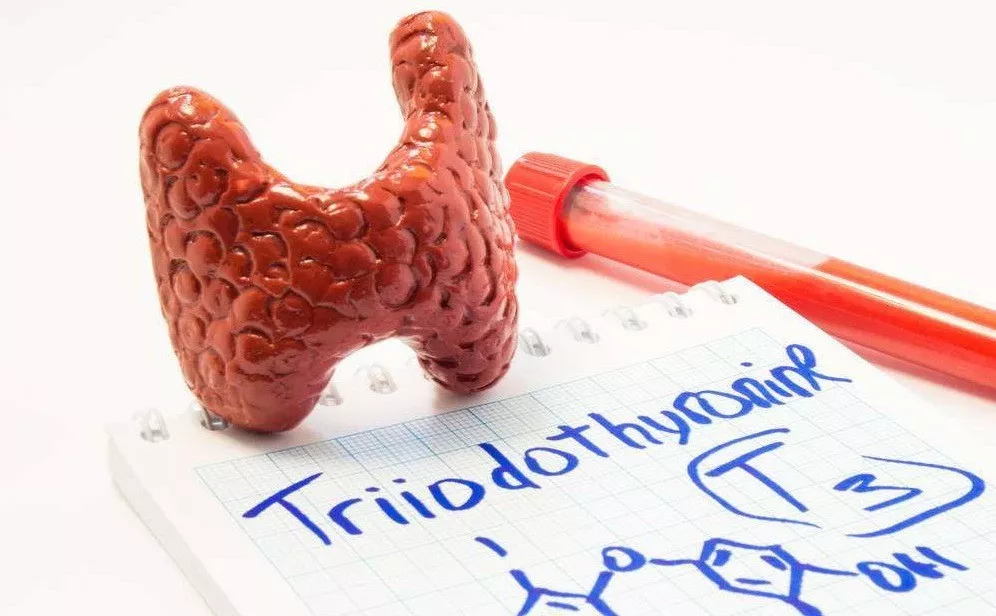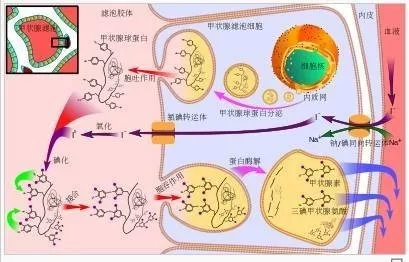Thyroid Function Test

The evaluation of thyroid function is mainly to determine the concentration of basal serum thyroxine. There are currently several basic thyroid hormone tests, including assays:Thyroxine (T4)、Free T4 (fT4)、3,5,3'-triiodothyronine (T3)、Free T3 (fT3)、3,3',5'-triiodothyronine (reverse-T3[rT3])、Endogenous TSH concentration.

Most of the hormone secreted by the thyroid is T4, which secretes only a small amount of T3 and a small amount of r-T3. After T4 enters the circulation, 99% bind to plasma proteins. Unbound or free T4 is biologically active, inhibits the secretion of pituitary TSH by a sub-feedback mechanism, and can also enter systemic tissue cells.
Although thyroxine changes rapidly into the tissue, protein-bound T4 acts as a reservoir to buffer and maintain a stable plasma T4 concentration.
Within the cell, fT4 is deiodinated to form T3 or rT3 depending on the need for tissue metabolism at a particular time. T3 is preferentially produced when tissue metabolism is normal, and no biologically active rT3 is produced when disease, starvation or endogenous catabolism is excessive. T3 binds to receptors in the mitochondria, nucleus and serosal cells of the cells to produce physiological effects. Due to the strong biological activity of T3, its distribution in cells exceeds T4, T4 deiodination preferentially forms T3, and T3 specific receptors exist, T3 is considered to be the main hormone that produces physiological activity.
Both the protein-bound and free T4 are derived from the thyroid gland, so serum total T4 and free T4, combined with serum TSH concentrations, can be used to evaluate thyroid function in dogs suspected of having hypothyroidism.
In contrast, most T3 and fT3 are formed by deiodination of T4 in the thyroid, especially in the liver, kidneys and muscles. T3 is mainly present in cells and is rarely secreted relative to the T4 thyroid gland, so it is not suitable for evaluating thyroid function. Serum T3, fT3 and rT3 are not recommended for the evaluation of canine thyroid function.
Basal serum T4 concentration
The basal serum T4 concentration is the sum of protein binding and free T4 in the blood circulation. Detection of serum T4 concentrations can be used to diagnose initial hypothyroidism or as part of a thyroid function test that includes T4, fT4, TSH, and lymphocyte thyroiditis antibody tests.
A single serum T4 value cannot be used to determine if the thyroid function is normal. The T4 value should be combined with medical history, physical examination and other clinical pathology information. All of this information provides clues to hypothyroidism or normal thyroid function. For veterinarians, it is difficult to judge the effect of exogenous factors on serum T4 levels, especially when complicated with other diseases. Because these abnormalities can inhibit the normal dog serum T4 concentration below 0.5 μg / dl, and the hypothyroidism dog serum T4 concentration is rarely higher than 1.5 μg / dl, so serum T4 concentration can be used to determine normal thyroid function.
Basal endogenous canine TSH concentration
The endogenous cTSH concentration must be interpreted in conjunction with serum T4 or fT4 in the same blood sample. When the medical history and physical examination were consistent, the serum T4 and fT4 concentrations of the same blood sample decreased and the cTSH concentration increased, indicating the presence of primary hypothyroidism; while the serum T4, fT4 and cTSH concentrations were normal, the hypothyroidism was excluded.



